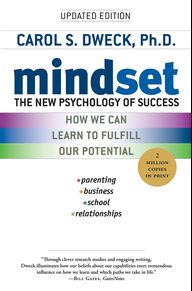55. Mindset - Carol Dweck (📖)
28 Apr 2019
Reading Notes:
Believing that your qualities are carved in stone – the fixed mindset – creates an urgency to prove yourself over and over. If you have only a certain amount of intelligence, a certain personality, and a certain moral character – well, then you’d better prove that you have a healthy dose of them.
I’ve seen so many people with this one consuming goal of proving themselves – in the classroom, in their careers, and in their relationships.
The fixed mindset makes you concerned with how you’ll be judged; the growth mindset makes you concerned with improving.
You have a choice. Mindsets are just beliefs. They’re powerful beliefs, but they’re something in your mind, and you can change your mind.
Benjamin Barber, “I divide the world into the learners and nonlearners.”
When people with the fixed mindset opt for success over growth, what are they really trying to prove? That they’re special. Even superior.
John Wooden, the legendary basketball coach, says you aren’t a failure until you start to blame.
Malcolm Gladwell, the author and New York writer, has suggested that as a society we value natural, effortless accomplishment over achievement through effort. We endow our heroes with superhuman abilities that led them inevitably toward their greatness.
We all need to accept some of our imperfections, especially the ones that don’t really harm our lives or the lives of others.
Just because some people can do something with little or no training, it doesn’t mean that other’s cant do it (and sometimes do it even better) with training.
For Jordan, success stems from the mind. “The mental toughness and the heart are a lot stronger than some of the physical advantages you might have.
The naturals, carried away with their superiority, don’t learn how to work hard or how to cope with setbacks.
Character is what allows you to reach the top and stay there.
“I believe ability can get you to the top,” says coach John Wooden but it takes character to keep you there.
Character, heart, the mind of a champion. It’s what makes great athletes and it’s what comes from the growth mindset with its focus on self-development, self-motivation and responsibility.
True self-confidence is “the courage to be open – to welcome change and new ideas regardless of their source.”
“Tout comprehendre c’est tout pardonner. “ To understand all is to forgive all.
Parents think they can hand children permanent confidence – like a gift – by praising their brains and talent. It doesn’t work, and in fact has the opposite effect. It makes children doubt themselves as soon as anything is hard or anything goes wrong.
We should keep away from a certain kind of praise – praise that judges their intelligence or talent. Or praise that implies that we’re proud of them for their intelligence or talent rather than for the work they put in.
Praise should deal, not with the child’s personality attributes, but with his efforts and achievements.
Wooden was not complicated. He was just a straight-ahead growth-mindset guy who lived by this rule: “You havbe to apply yourself each day to becoming a little better.”
What he was really good at was analyzing and motivating his players. With these skills he was able to help his players fulfill their potential, not just in basketball, but in life – something he found even more rewarding than winning games.
Parents, teachers, and coaches pass on a growth mindset not by having a belief sitting in their heads but by embodying a growth mindset in their deeds: the way they praise (convey the processes that lead to learning), the way they treat setbacks (as opportunities for learning), and the way they focus on deepening understand (as the goal of learning).
Remember that praising children’s intelligence or talent, tempting as it is, sends a fixed-mindset message. It makes their confidence and motivation more fragile. Instead, try to focus on the processes they used – their strategies, effort, or choices. Practice working the process praise into your interactions with your children.
Observe. Learn. Improve. Become a better athlete.
When people hold on to a fixed mindset, it’s often for a reason. At some point in their lives it served a good purpose for them. It told them who they were or who they wanted to be (a smart, talented child) and it told them how to be that (perform well). In this way, it provided a formula for self-estreem and a path to love and respect from others.
Then there’s a concern that you won’t be yourself anymore. It may feel as though the fixed mindset gave you your ambition, your edge, your individuality. Maybe you fear you’ll become a bland cog in the wheels just like everyone else. Ordinary.
But opening yourself up to growth makes you more yourself, not less.
The fixed mindset is so very tempting. It seems to promise children a lifetime of worth, success and admiration just for sitting there and being who they are. That’s why it can take a lot of work to make the growth mindset flourish where the fixed mindset has taken root.
Mindset change is not about picking up a few pointers here and there. It’s about seeing things in a new way. When people change to a growth mindset, they change from a judge-to-be-judged framework, to learn-and-help-learn framework. Their commitment is to growth, and growth takes plenty of time, effort, and mutual support to achieve and maintain.